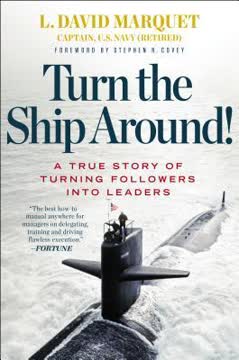Key Takeaways
1. Establish a solid foundation: Incorporate and set up your office
Act Like You Have a Business and You'll Have One
Incorporate your business. This creates a legal entity that separates your personal and professional assets, providing essential protection. Choose between subchapter S, C corporation, or LLC based on your specific needs and consult with an attorney specializing in professional services firms.
Set up a professional office space. Whether at home or elsewhere, create a dedicated, private workspace. Essential equipment includes:
- Computer with high-speed internet
- Multi-line phone system
- Printer, copier, and fax machine
- Professional-grade postage meter
Establish business banking. Open separate checking and savings accounts for your business. Meet with the branch manager to discuss your needs and potential for future growth.
2. Create a compelling brand identity and marketing materials
If you don't blow your own horn, there is no music.
Develop a strong brand. Work with a professional designer to create a logo, business cards, and stationery that reflect your unique value proposition. Ensure your materials convey professionalism and credibility.
Create a comprehensive press kit. Include:
- Results clients can expect
- Testimonials (or character references if just starting)
- Biographical sketch
- Position papers showcasing your expertise
- List of services offered
Establish an effective web presence. Design a professional website that serves as a credibility tool, not a sales platform. Key elements:
- Clear articulation of client results and value
- Easy navigation and fast loading
- Regular updates with valuable content (articles, resources)
- Professional contact information
3. Develop a diverse network and leverage relationships
Networking is the interactive pursuit of others and development of reciprocally beneficial relationships through interpersonal, telephonic, electronic, and correspondence activities.
Build a robust network. Systematically reach out to:
- Former colleagues and clients
- Professional association members
- Community leaders
- Industry experts
Provide value first. Focus on how you can help others before asking for anything in return. Share relevant articles, make introductions, or offer insights based on your expertise.
Engage in strategic pro bono work. Choose organizations that align with your values and provide access to potential clients or influential decision-makers. Use these opportunities to showcase your skills and build relationships.
4. Master value-based pricing to maximize profitability
If you bill by the hour, you cheat your client and yourself.
Abandon hourly billing. Instead, focus on the value you provide to clients. This approach allows you to earn fees commensurate with the results you deliver, rather than being limited by time-based constraints.
Educate clients on value-based pricing. Emphasize benefits such as:
- Predictable costs with no surprises
- Focus on results rather than time spent
- Alignment of interests between consultant and client
Provide options. Present multiple project scopes and corresponding fees, allowing clients to choose the level of investment that best suits their needs and budget.
5. Craft persuasive proposals that showcase your value
Proposals are summations, not explorations.
Focus on outcomes. Clearly articulate the specific results clients can expect from your work. Use concrete, measurable objectives whenever possible.
Structure your proposal effectively:
- Situation appraisal
- Objectives
- Measures of success
- Value to the organization
- Methodology and options
- Timing
- Joint accountabilities
- Terms and conditions
- Acceptance
Keep it concise. Aim for a 2-3 page proposal that succinctly communicates your value proposition and project details.
6. Implement a systematic approach to generating leads
Marketing is the act of creating and accentuating need among potential buyers of your services.
Leverage your existing network. Create a comprehensive list of contacts and systematically reach out to inform them of your new venture. Ask for referrals and introductions to potential clients.
Target high-potential organizations. Identify 10-15 companies that match your ideal client profile. Research their needs and craft personalized outreach messages highlighting how your services can address their specific challenges.
Create a consistent marketing routine. Dedicate time each week to activities such as:
- Writing and publishing articles
- Engaging on social media platforms
- Attending industry events
- Following up with prospects and referral sources
7. Continuously refine your skills and expand your offerings
The more you learn, the more valuable you are.
Invest in ongoing professional development. Regularly attend conferences, workshops, and seminars to stay current with industry trends and best practices. Consider pursuing advanced certifications or degrees relevant to your field.
Develop passive income streams. Create products such as books, online courses, or subscription-based services that generate revenue without requiring your direct time investment.
Seek opportunities for thought leadership. Aim to become a recognized expert in your niche by:
- Publishing articles and books
- Speaking at conferences
- Engaging with media as an industry expert
- Developing a strong online presence through blogging and social media
Mentor others and give back to the profession. As you become established, share your knowledge and experience with aspiring consultants. This not only contributes to the field but also reinforces your own expertise and opens new networking opportunities.
Last updated:
FAQ
What's Getting Started in Consulting by Alan Weiss about?
- Consulting Career Guidance: The book is a comprehensive guide for those looking to enter the consulting profession, focusing on establishing a solid foundation.
- Practical Steps: It covers essential topics like setting goals, understanding financial needs, and creating a professional image.
- Expert Insights: Alan Weiss shares his extensive experience, making it valuable for both new and seasoned consultants.
Why should I read Getting Started in Consulting by Alan Weiss?
- Proven Success: It's a best-seller in the "Getting Started in..." series, indicating its popularity and effectiveness.
- Actionable Advice: Offers practical strategies and techniques that can be implemented immediately to enhance your consulting practice.
- Expert Author: Written by renowned consultant Alan Weiss, providing insights from someone who has successfully navigated the consulting landscape.
What are the key takeaways of Getting Started in Consulting by Alan Weiss?
- Establishing Goals: Emphasizes the importance of setting clear, achievable goals for your consulting career.
- Building Relationships: Stresses that consulting is about creating relationships, not just making sales, crucial for long-term success.
- Value Proposition: Understanding and articulating your unique value to clients helps you stand out in a competitive market.
What are the best quotes from Getting Started in Consulting by Alan Weiss and what do they mean?
- "You Will Be What You Decide to Be": Highlights the power of self-determination in shaping your consulting career.
- "If You Bill by the Hour, You Cheat Your Client and Yourself": Encourages value-based pricing over time-based billing, focusing on the value provided.
- "The Nature of Excellent Proposals": Stresses the importance of crafting proposals that clearly communicate value and align with client needs.
What is the significance of value-based fees in consulting according to Alan Weiss?
- Higher Earnings: Allows consultants to charge based on results, leading to higher earnings compared to hourly rates.
- Client Satisfaction: Clients view fees as an investment, fostering long-term relationships and repeat business.
- Flexibility in Services: Enables offering a range of services tailored to client needs, enhancing appeal and marketability.
How does Getting Started in Consulting by Alan Weiss suggest managing time effectively?
- Prioritization: Emphasizes prioritizing tasks rather than merely managing resources.
- Creating Lists: Recommends using lists to track personal and professional goals, maintaining focus.
- Integration of Life: Advises integrating personal and professional life for greater overall success.
What are the financial considerations mentioned in Getting Started in Consulting by Alan Weiss?
- Starting Capital: Discusses the importance of having financial reserves to support yourself initially.
- Expense Management: Advises reducing monthly expenses to create a sustainable financial base.
- Funding Sources: Explores various funding sources like home equity lines and personal savings for financial management.
How does Alan Weiss suggest building client relationships in Getting Started in Consulting?
- Trust and Candor: Emphasizes establishing trust and open communication with clients.
- Engagement in Diagnosis: Advises involving clients in the diagnostic process for better investment in outcomes.
- Follow-Up: Regular follow-up is crucial for maintaining relationships and ensuring satisfaction.
What is the role of marketing in consulting according to Getting Started in Consulting by Alan Weiss?
- Creating Need: Describes marketing as creating and accentuating the need for your services.
- Building Gravity: Introduces "marketing gravity," attracting clients rather than chasing them.
- Networking: Highlights networking as crucial, emphasizing building relationships and providing value.
What is the role of proposals in consulting according to Getting Started in Consulting by Alan Weiss?
- Summation of Agreement: Proposals should outline objectives, success measures, and value to the organization.
- Not a Negotiation Tool: Should reflect prior discussions and agreements, not be used for negotiation.
- Clarity and Brevity: Effective proposals are clear and concise, facilitating quicker client approvals.
How can I effectively market my consulting services according to Alan Weiss?
- Leverage Existing Networks: Reach out to former colleagues, friends, and contacts for referrals.
- Targeted Prospecting: Use the "Target 12" approach to identify and reach out to ideal client organizations.
- Consistent Follow-Up: Regular follow-up with prospects is crucial for converting leads into clients.
What are the common pitfalls to avoid when starting a consulting practice according to Alan Weiss?
- Overestimating Market Need: Conduct thorough market research to understand actual client needs.
- Neglecting Marketing: Consistent marketing is vital for attracting new clients and sustaining growth.
- Undercharging for Services: Establish fees that reflect the value provided to clients to avoid lower earnings.
Review Summary
Getting Started in Consulting receives mixed reviews, with an average rating of 3.91 out of 5. Many readers find it valuable for aspiring consultants, offering practical advice on starting and running a consulting business. The book covers topics like marketing, pricing, and client management. Some praise its comprehensive coverage and actionable insights, while others note outdated technology references. Readers appreciate the author's clear writing style and real-world examples. Despite some criticism, many consider it a must-read for those entering the consulting field or looking to enhance their practice.
Similar Books










Download PDF
Download EPUB
.epub digital book format is ideal for reading ebooks on phones, tablets, and e-readers.








